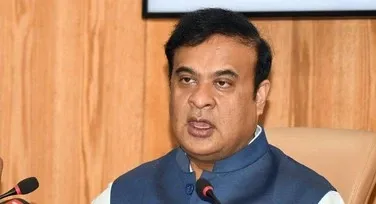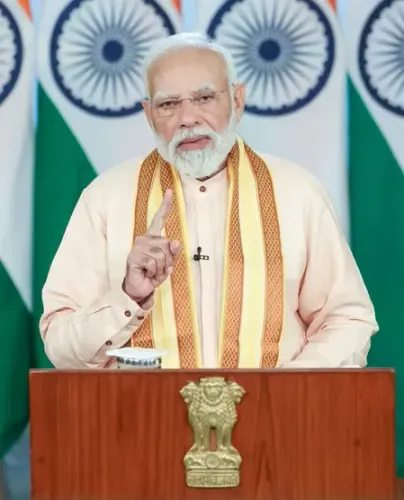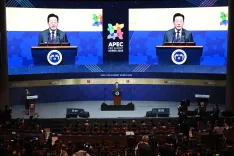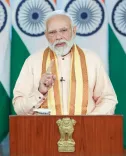Did Indira Gandhi Mishandle the Situation Post-Bangladesh Creation?

Synopsis
Key Takeaways
- Indira Gandhi's leadership during a pivotal moment in history is under scrutiny.
- The 1971 victory over Pakistan led to the creation of Bangladesh.
- Critics argue that strategic opportunities were missed.
- The demographic changes in Bangladesh raise concerns about secular values.
- Political instability in the Northeast is linked to immigration issues.
Guwahati, May 11 (NationPress) Assam Chief Minister Himanta Biswa Sarma criticized former Prime Minister Indira Gandhi, asserting that she mishandled the aftermath of Bangladesh's formation following India's pivotal 1971 victory over Pakistan.
In a statement on X, Sarma highlighted that the political leadership of that era missed a critical opportunity during a significant period. His comments come amid backlash from Congress leaders targeting Prime Minister Narendra Modi, triggered by US President Donald Trump's remarks indicating that India and Pakistan had consented to a complete and immediate ceasefire following American mediation.
The agreement entails a cessation of all military actions—on land, in the air, and at sea—effective immediately. Several opposition figures have drawn parallels between PM Modi’s strategy and Indira Gandhi’s management of the 1971 Indo-Pak conflict.
Sarma aptly titled his post 'The Myth of Bangladesh's Creation: A Strategic Triumph, A Diplomatic Folly'.
“India's military victory in 1971 was both decisive and historic. It fragmented Pakistan and led to the establishment of Bangladesh. However, while our military achieved remarkable success on the battlefield, India's political leadership failed to secure enduring strategic advantages,” he commented. He argued that while the establishment of Bangladesh is often celebrated as a diplomatic success, the historical narrative reveals a different truth.
“The military success of India in 1971 was not complemented by strategic insight. What could have resulted in a new regional paradigm turned into a unilateral act of benevolence. If Mrs. Indira Gandhi were alive today, the nation would have held her accountable for mishandling the decisive victory achieved by our military. The birth of Bangladesh was not merely a concession—it was a historic opportunity squandered,” Sarma stated.
In support of his claims, the Chief Minister provided six reasons, stating that the creation of Bangladesh was intended to be a secular promise but has since transformed into an “Islamic reality”. “India championed a secular Bangladesh. Yet by 1988, Islam was designated as the state religion. Currently, political Islam prevails in Dhaka, undermining the very principles India sought to uphold,” he elaborated.
Addressing the alleged oppression of Hindus in the neighboring country, Sarma noted that the minority community once constituted 20% of Bangladesh's populace but has now decreased to less than 8% due to 'systematic discrimination and violence,' which has persisted and morphed into a “shameful reality that India has predominantly overlooked.”
“The Chicken's Neck remains vulnerable... Despite military superiority, India did not address the weaknesses of the Siliguri Corridor. A secure land route through northern Bangladesh could have unified the Northeast, yet no such initiative was ever pursued,” he added. Referring to the ongoing immigration dilemma, the Assam CM pointed out that no agreement was achieved for the mandated return of illegal Bangladeshi migrants.
“Consequently, Assam, Bengal, and the Northeast are confronting unchecked demographic transformations, leading to social unrest and political instability,” he remarked. Sarma further asserted that India failed to gain access to the strategic Chittagong Port, and even after five decades, the Northeast remains landlocked.
He also claimed that insurgents found sanctuary in Bangladesh, as for many years, the neighboring country acted as a refuge for anti-India militant factions, exploiting the void left unaddressed by India in 1971. “Conclusion: A Victory Undone by Silence,” Sarma concluded.









